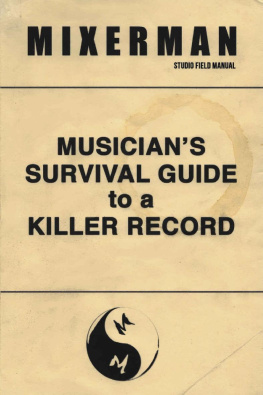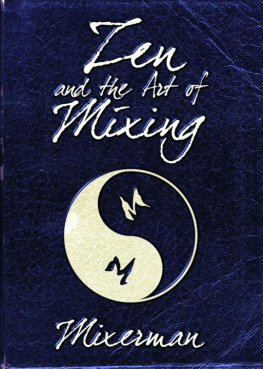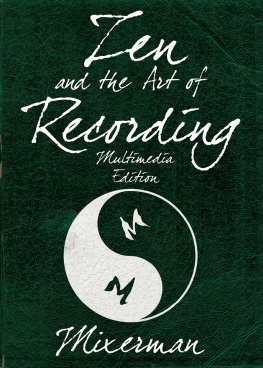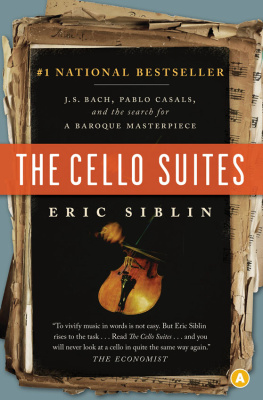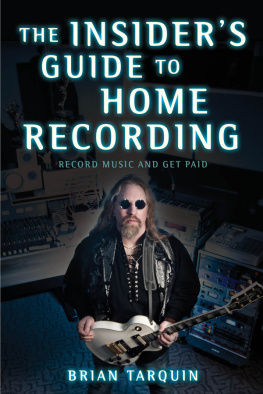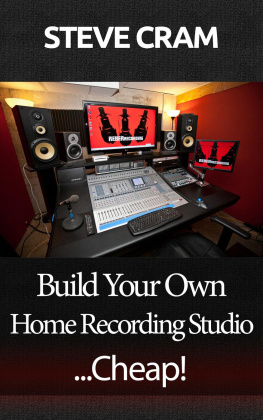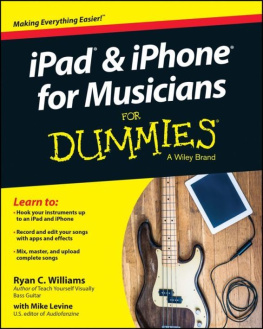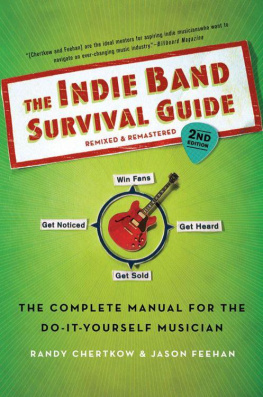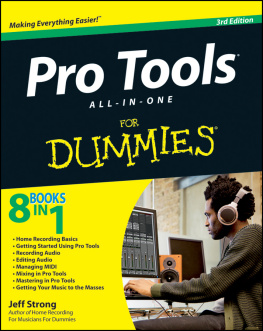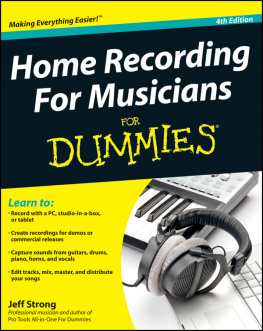Copyright 2018 by Mixerman Multimedia
All rights reserved. No part of this book may be reproduced in any form, without written permission, except by a newspaper or magazine reviewer who wishes to quote brief passages in connection with a review.
Published in 2018 by Mixerman Publishes
An Imprint of Mixerman Multimedia
Asheville, NC
mixerman@mixerman.net
Cover design by Adam Strange
Library of Congress Cataloging-in-Publication Data is available upon request.
ISBN-13: 978-0692194393
ISBN-10: 0692194398
Acknowledgements
Special Thanks to:
Tanya Rodriguez
Faith & Eugene Sarafin
John Dooher
Tony DeStefano
William Wittman
Bob Brown
John Kay
Robert Campion
Roland Cozzolino
Jamie Schultz
Stupid Games
Amanda Vallejo
Adam Strange
Michael Selverne
Marcel Anton
Ken Bogdanowicz
Randy Fuchs & Tanya Hamilton
Roman Perschon
Steven Slate
Max Sarafin
The Contents
The Intro
This Survival Guide is not intended to make you a better recordist. It's designed to get you thinking about your Art and the creation of it from a musical placeregardless of genreand to turn technical decisions into practical ones.
Given the title, it should be no surprise that I wrote this guide specifically for musicians. Every explanation and recommendation that I make is based on the realities of the recording musician today. Some of you are relatively new to the process. Others of you have recorded for years, but may be frustrated with the incremental improvements in your records.
This is not the book to learn how to plug in an interface or how to choose a DAW. This is a Survival Guide, its not a From-The-Ground-Up Guide. If you dont know what converters are, or what a mic preamp is, or a compressor, or the difference between a real mic and a USB mic, then this book will be a little advanced for you. If, on the other hand, you want to know how to make all of those tools work for you rather than against youthat I can help you with.
Very few of us operate purely as a musician these days. Youre probably also an Artist, a producer, a recordist and a mixer. Those creative positions were formerly held by a team of people who were ideally experts at their respective jobs. These days, its more likely that one person is doing them all.
You.
Which is a little problematic, because theres an inherent tension that occurs between the recordist, who is tasked with an accurate capture, and the producer, who is more concerned with performance. This sometimes results in making a take before the recordist is ready (which really annoys the recordist I have to say).
Personally, Id rather have a less than ideal capture of my Artist when shes itching to perform, than to have her shut down because my recordist spent too much time dicking around with tone. If theres a usable signal coming through the monitors, and an inspired singer standing in front of the mic, Im hitting record, regardless of protests from my recordist. Im not going to allow technical bullshit to prevent me from capturing the performance of a lifetime. Even if theres a sonic technical issue, if its a great performance, were good. Sound Schmound.
Unfortunately, if youre both the performer and the recordist and theres no producer to crack the whip, it can be difficult to extract yourself from the engineering mindset, mostly because you want your record to sound good, and if you dont focus on the sound, you could very well ruin your record. In reality its an uninspired performance that will ruin your record, and the best way I know to achieve an uninspired performance is to focus on sound.
So does that mean you should just haphazardly throw up a mic, plug it into the nearest preamp and hope for the best? Of course not. But there are strategies that you can implement. In the case of a vocal, you could do some advance work, so that the mic and the preamp are ready to go the moment youre inspired.
Its critical that you learn good habits in your quest to make a Killer Record. Oh, and not just one Killer Record, but many. As such, the intent of this book is to provide you with a blueprinta method, as it wereto bring you along the path of success. Which all starts with the acceptance that if you want a prosperous and successful record career, the music is where you should focus your attention.
This requires discipline. Not in doing the work. Most of you love recording and if you could do it all day and night you would. No, Im talking about the discipline to make musical decisions rather than sonic ones. That will take some practice. Hey, youre a musician. You should be used to practice by now.
You dont need to know anything about how anything works from a technical perspective where it comes to making a Killer Record. Seriously, for many years I couldnt tell you how any of this shit works beyond the basics myself. I literally learned how to record by rote, and picked up everything else along the way. Here we are five gold records, one platinum, and a multi-platinum record later, so clearly, all that you need to know is how things work from a practical perspective. And if youd like to dive deeper into the technical aspects of recording, then by all means jump on the Internet and do some research.
Its not like its difficult to find obviously reputable sources who can accurately explain how recording tools work. I just typed how does ratio work on a compressor, into my search engine, and on the first page there are several legitimate articles, and a few questionable ones. All of the well-known sources offer an accurate technical explanation of how ratio works. None of them really offers a practical explanation of how to choose your ratio.
Despite the ubiquitous nature of information on how to get started recording, somehow that doesnt stop people from going on to a professional recording forum and asking what an interface does (bless your heart). Fortunately, there are many people with far more patience than I who will gladly dispense that sort of information to you. Theyre called Gear Pimps. Seriously, why would you ask strangers on the Internet advice on gear when a Gear Pimp will go out of her way to give you the best consultation she can based on your needs and workflow? Because she wants to sell you something? Good! She wants to sell you lots of somethings, and it makes no sense for her to sell you the wrong thing. If youre asking about the best converter under $1000, then you clearly want to buy something. Go talk to the person who wants to sell you something.
Sheesh.
The mantra of this book is you have what you have and what you have is going to change. In fact, I did not mention any audio gear brands or models in the body of this book, nor did I need to. In other words, if all you have is a DAW, an interface, and a mic, thats probably enough to get you started. But you have to face some reality here. You will be severely limited in what you can do.
Theres nothing wrong with limitations. We deal with them on a daily basis. Music has limitations. Our creativity manifests in how we operate within those limitations. And when you get really good, you learn how to expand your limitations into assets.
I peruse the various recording forums on the Internet a fair bit, and the mythology that is passed around in regards to recording and mixing is rather remarkable. Oftentimes, those who would be educators dont know much of anything themselves and have never been involved in a record of note. Believe me, a record of note is not a prerequisite for explaining basic signal flow. It is, however, an absolute requirement when it comes to understanding how to make a record of note.

